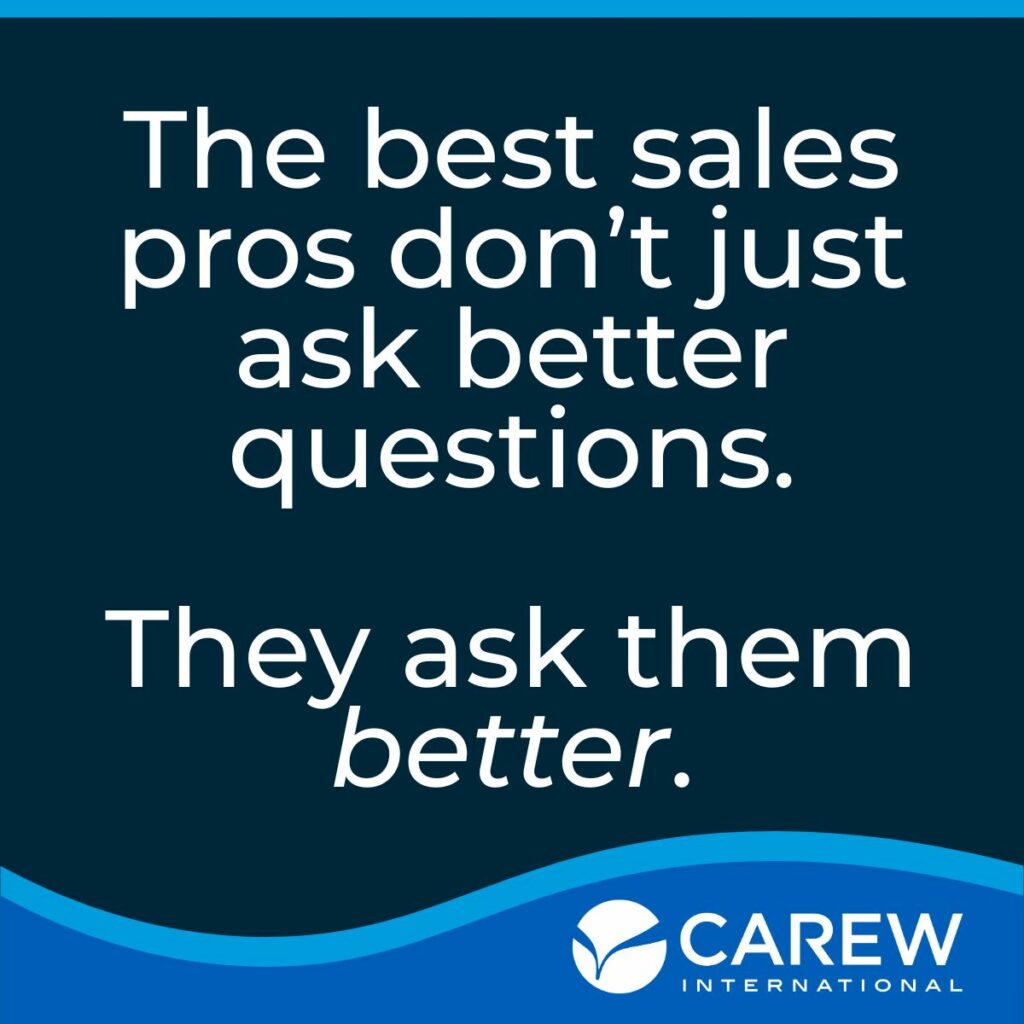You don’t need to be a parent to know the power of the word “why.” But if you are a parent, you’ve probably heard it no fewer than 30 times before breakfast.
There’s a reason this little question packs such a punch – especially in sales.
Asking “why?” helps you uncover the truth behind decisions, motivations, and objections. It’s the foundation of trust. It’s the shortcut to relevance. It’s how you move from being a pitch artist to a problem-solver.
Let’s talk about how to use it the right way, and then we’ll hand you 20 fresh alternatives you can start using today. No toddler voice required.
This Isn’t Curiosity for Curiosity’s Sake
This is about sales influence. This is about building real trust. This is about positioning yourself as someone who gets it.
Asking “why?” unlocks:
- Hidden motivators and unspoken objections
- Clarity around decision-making
- Opportunities to reframe the conversation
That moment when your buyer pauses and says, “Good question…” That’s the gold.
But here’s the kicker: if you sound like you’re just poking holes or interrogating, you’ll lose them.
Why Asking “Why?” Works
Think of it as flipping on the light switch.
When a buyer tells you what they want, that’s surface-level. When you uncover why they want it, you hit emotion, urgency, and ownership.
That’s when the sale becomes theirs – not yours.
Asking “why?”:
- Exposes the root cause behind problems
- Challenges assumptions in a non-threatening way
- Helps your customer think more critically (which they will thank you for)
And when the customer feels like they arrived at the answer themselves? You’re not selling – you’re leading.
Why This Fits Into Carew’s Exploratory Process
The Exploratory Process is more than a set of questions – it’s a mindset. One that’s wired to uncover what the customer actually wants… not just what they say they want.
When sales professionals ask “why?” with intention, it:
- Creates clarity around the customer’s desired outcome
- Positions you as a trusted advisor
- Builds the foundation for LAER: The Bonding Process®
We’re not guessing. We’re guiding.
20 Creative Ways to Ask “Why?” (That Don’t Sound Like a Broken Record)
Here’s your cheat sheet for sounding like a seasoned sales pro instead of a preschooler:
- What’s the reason for that?
- How did you land on that approach?
- What’s the thinking behind that?
- What led up to that decision?
- What’s driving that priority right now?
- What was the trigger for that change?
- Can you walk me through the rationale?
- What’s most important about that to you?
- How did that become the goal?
- What’s influencing that direction?
- What would happen if you didn’t make that change?
- What concerns were you trying to solve for?
- What pushed this to the top of the list?
- What’s the long-term impact you’re hoping for?
- What’s your team’s take on that?
- What does success look like from your view?
- What outcome are you aiming to protect?
- What made this the best option for you?
- How does this align with your bigger strategy?
- What’s been the biggest challenge leading to this?
Wait… these don’t start with “why”?
True. And that’s the point.
Every question in this list is still a “why” question – it just doesn’t sound like one. That’s how you keep the conversation open instead of putting people on the defensive. You’re still uncovering motivation, intention, and rationale… just without sounding like a toddler or triggering a knee-jerk “because I said so.”
The best sales pros don’t just ask better questions.
They ask them better.

How to Ask Better Questions in Sales: FAQ
Maybe. Asking “why” can feel like an interrogation. It can trigger defensiveness and shut down open conversation. These alternative questions still uncover the why – just with a little more finesse.
Not at all. Use them during negotiations, presentations, renewal conversations, or any time you’re trying to understand what matters most to the buyer.
Yes – they’re versatile. Just tweak the tone for written communication.
That’s valuable insight in itself. A short answer might mean they’re unsure, hesitant, or hiding a bigger concern. Use follow-ups like, “Can you say more about that?” or “How so?” to gently draw more out.
Print the cheat sheet below, role-play with common scenarios, and have reps pick 3 go-to questions for each sales stage. Repetition builds confidence and fluency.
Ask Better Questions. Win Bigger Deals.
“Why?” is your way in – and your way forward. Whether you’re kicking off a first meeting or steering a stalled conversation, the right question opens the door to trust, relevance, and real momentum.
The reps who know how to ask the right “why” questions?
They don’t just close more. They lead.

